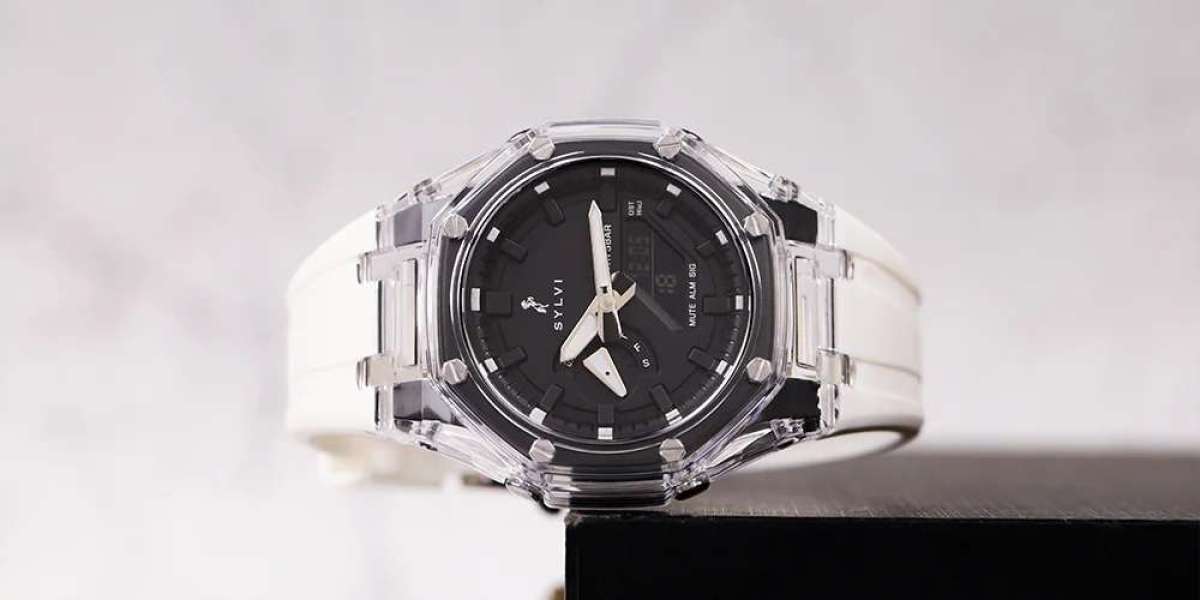Time is one of the most precious things we have, and how we keep track of it says a lot about our lifestyle. In the world of watches, few innovations have had the impact that quartz technology has. From luxury models to affordable everyday wear, quartz watches are everywhere. But what makes them so popular? Why do millions of people trust quartz watches over other types?
In this beginner-friendly guide, let’s explore the world of quartz watches — what they are, how they work, their benefits, and why they are a great choice for anyone, whether you're just starting your watch journey or looking to upgrade your timepiece.
What Exactly is a Quartz Watch?
A quartz watch is a timekeeping device that uses a quartz crystal and a battery to keep time. The key to its accuracy lies in how the quartz crystal vibrates when electricity passes through it. These vibrations are extremely consistent and help the watch measure time with excellent precision.
Quartz technology became widely popular in the 1970s when Japanese companies like Seiko introduced quartz movements to the market. It marked the beginning of what the watch industry calls the Quartz Revolution or Quartz Crisis, because mechanical watchmakers around the world were shocked by the rise of these new, accurate, and affordable watches.
How Does a Quartz Watch Work?
Understanding how a quartz watch works is simple if you break it down step by step:
1. Battery Supplies Power
A small button-cell battery is inserted into the watch. This battery acts as the power source, replacing the traditional winding mechanism used in mechanical watches.
2. Quartz Crystal Vibrates
Inside the watch, there's a tiny piece of quartz — a naturally occurring mineral. When electricity from the battery passes through it, the quartz begins to vibrate at exactly 32,768 times per second. This frequency is incredibly stable and doesn’t change with temperature or time.
3. Circuit Converts Vibrations into Pulses
These tiny vibrations are picked up by a microchip that converts them into a single electrical pulse per second.
4. Step Motor Moves the Hands
That pulse is sent to a stepper motor, which turns the watch's gears and moves the second, minute, and hour hands in precise one-second intervals.
This whole process happens constantly and accurately, which is why quartz watches are trusted worldwide for their accuracy and ease of use.
Why Quartz Watches Are So Popular
If you're wondering why people prefer quartz watches, here are some key reasons:
✅ Extreme Accuracy
Quartz watches are among the most accurate types of watches available. A typical quartz watch may only lose or gain 15 to 30 seconds per month, which is far more precise than most mechanical watches.
✅ Low Maintenance
Quartz watches don’t need to be wound regularly. All they require is a battery change every 1 to 2 years, depending on the model. This makes them incredibly convenient for everyday use.
✅ Affordable
Quartz movements are cheaper to produce than mechanical movements. That’s why you’ll find a wide variety of quartz watches at affordable prices without compromising quality.
✅ Durable and Reliable
Quartz watches have fewer moving parts, which means they are less sensitive to shocks, temperature changes, and wear and tear. This makes them perfect for people with active lifestyles.
Quartz Watch vs Mechanical Watch: A Quick Comparison
| Feature | Quartz Watch | Mechanical Watch |
|---|---|---|
| Power Source | Battery | Mainspring (manual or automatic) |
| Accuracy | Very High (±15 sec/month) | Moderate (±30 sec/day) |
| Maintenance | Battery change every 1–2 years | Regular servicing required |
| Price Range | Generally Affordable | Usually Higher |
| Lifespan | Long (if battery is changed in time) | Long (but requires proper maintenance) |
| Ideal For | Everyday use, casual & business wear | Watch enthusiasts, collectors |
Types of Quartz Watches
Quartz watches come in many styles and formats. Here's a quick breakdown of the most popular types:
⌚ Analog Quartz Watches
These watches have the traditional hour, minute, and second hands. They look like classic watches but are powered by quartz movement instead of mechanical gears.
? Digital Quartz Watches
These show the time on an LCD or LED screen. They often come with added features like alarms, backlights, date displays, and stopwatches.
⌚? Ana-Digi (Analog + Digital) Watches
As the name suggests, these watches combine both analog hands and a digital display. This hybrid design is sporty and functional.
Who Should Wear a Quartz Watch?
Quartz watches are ideal for:
Students – who need accurate time for classes and exams.
Working professionals – who prefer low-maintenance and stylish timepieces.
Travelers – who need durability and precision across time zones.
Athletes and outdoor lovers – thanks to quartz watches’ shock resistance and extra features in digital models.
Style seekers – who want affordable fashion watches with accurate timekeeping.
Whether it’s a formal meeting or a casual hangout, there’s a quartz watch for every occasion.
Caring for a Quartz Watch
Quartz watches are low maintenance, but a little care can make them last longer:
Replace the battery on time to avoid leakage.
Keep it clean by wiping the case and strap regularly.
Avoid magnets as they can affect the timekeeping.
Keep away from water unless your watch is water-resistant.
Store in a cool, dry place when not in use.
When Should You Replace the Battery?
Some signs your quartz watch battery may need replacing:
The second hand starts jumping in 2–4 second intervals.
The watch stops completely.
The digital display fades or stops responding.
Changing the battery at the right time ensures the quartz crystal inside continues to function correctly.
Common Myths About Quartz Watches
Let’s bust a few myths:
❌ Quartz watches are low quality.
Not true! Many high-end brands use quartz movements in luxury watches.❌ Quartz watches don't last long.
With regular battery changes and basic care, quartz watches can last for decades.❌ Mechanical watches are always better.
While mechanical watches have craftsmanship appeal, quartz offers unmatched accuracy and convenience.
Final Thoughts: Why Quartz is Still King
In today’s fast-paced world, where reliability and convenience are key, quartz watches remain an unbeatable choice. They combine precision, style, and affordability like no other. Whether you’re buying your first watch or adding to your growing collection, a quartz watch gives you value that lasts.
From business meetings to weekend getaways, a quartz watch ticks along—quietly, accurately, and stylishly. It’s not just about telling time; it’s about making every second count.
Searching for a reliable, stylish quartz watch? Explore Sylvi’s collection of premium quartz watches designed for modern lifestyles — crafted with care, powered by precision.



